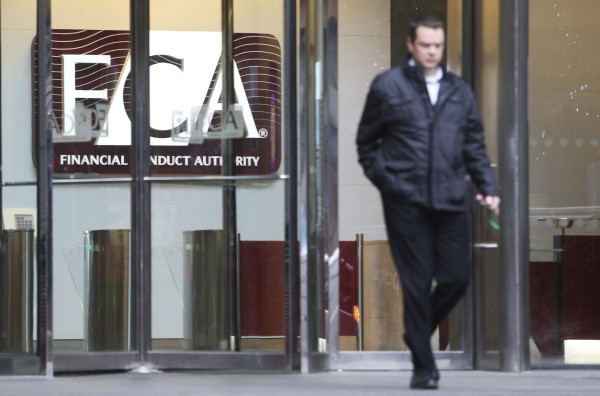

Financial advisers are backing the FCA's action to tackle problems faced by the non-advised who opt for drawdown but Labour MP Frank Field has questioned the pace of the regulator's progress.
The regulator revealed last week that it is considering forcing providers to offer their customers easy to access ready-made drawdown investment products, in a bid to prevent them from sticking their money into cash.
In the FCA's retirement outcomes review final report, the watchdog estimates around 50,000 (33 per cent) of non-advised consumers are wholly holding cash, with more than half at risk of losing out on significant returns as a result.
While the FCA's proposals have been applauded by financial advisers Labour MP Mr Field, chairman of the Work & Pensions select committee, said while the watchdog's report was in the right direction the regulator's progress was "devilishly glacial."
He said: "Report after report shows that inadequate protections are in place for too many savers.
"Yet again, the FCA has found that people are losing out in tax and investment returns by hiding their pensions in cash bank accounts.
"Yet again, the FCA has found that people are being ripped off by unjustifiably high and complex charges.
"But the FCA wants another year to mull over a charge cap while life savings are shamelessly milked. There has been more than enough warning. They should just introduce it."
Martin Bamford, chartered financial planner for Surrey-based Informed Choice, said it is "worrying how easy it is for a non-advised investor to end up in an expensive drawdown or languishing in cash, but this is the reality of people making their own mistakes with their own money".
He added: "Product providers seem to need an unambiguous steer from the regulator before improving outcomes for consumers. If this review results in more prescriptive rules that providers must follow, it should result in better outcomes."
The FCA's research also found the vast majority (94 per cent) of consumers who accessed their pots without taking advice accepted the drawdown option offered by their pension provider, compared with only 35 per cent of advised consumers.
Dave Penny, managing director of Invest Southwest, argued the FCA is being "increasingly hands on," due to pension freedoms being rushed into being in 2015.
He said: "When (then chancellor) George Osborne announced the pension freedoms everybody was caught on the hop, including the FCA.
"The initial absence of guidance was followed by rather vague contradictory utterances, and so I think it is right for the regulator to try to provide more guidance.
"There is absolutely a danger that providers will lazily funnel clients into poor products and so I would expect the FCA to be 'all over' this risk."
On the other hand, Alan Chan, director and chartered financial planner at London-based IFS Wealth & Pensions, stressed that firms are limited in what they can do, since these are non-advised customers.
He said: "Providers can only act on the consumers' explicit instruction and can only do so much before its deemed that they are giving advice to their clients, and so could face lawsuits in the future if it turns out to be a bad decision.
"The majority of these consumers do not want to take professional advice or pay for it, so it is down to them to get it right."
Providers, trade bodies and politicians are also welcoming the watchdog's stance on non-advised drawdown.
Alistair Wilson, Zurich's head of retail platform strategy, told FTAdviser that the research results show the "FCA is not seeing the speed of movement it wants on cost disclosure and customer communication".
The regulator's report showed drawdown fees vary from 0.4 to 1.6 per cent between providers, and are, on average, higher than in accumulation (where in some cases they are capped at 0.75 per cent).
Mr Wilson said: "Many providers – mostly but not exclusively those offering non-advised drawdown - impose a variety of ad hoc ancillary costs.
"Indeed, the FCA identified a staggering 44 different associated charges. This can make it impossible for consumers to understand the extent of the true costs they are paying.
"Exposing such costs may help to drive more transparent and lower charges for customers but calculating them will still remain an issue."
Jessica List, pension technical manager at Curtis Banks, argued that the regulator seems "to be proceeding cautiously with exploring the idea of investment pathways, acknowledging the challenges and offering options to be explored."
She said: "This is very welcome: it appears to recognise that there is a wide range of products in the market to suit the varying needs of a wide spectrum of investors, and any remedies need to be mindful of that fact."
Simon Harrington, senior policy adviser at the Personal Investment Management & Financial Advice Assocation (Pimfa), noted the FCA has "struck the right balance" with the proposed measures.
He said: "In our view, these interventions lay the foundations for the market to innovate further whilst also ensuring that disengaged and vulnerable consumers are able to take a retirement income in a manner that is safe but also inclusive.
"Clearly, we believe that consumers who are advised will tend to get better outcomes, but we need to be realistic about the nature of the market for advice. These measures will ensure that as many people as possible can benefit from the freedom and choice policy."
maria.espadinha@ft.com



